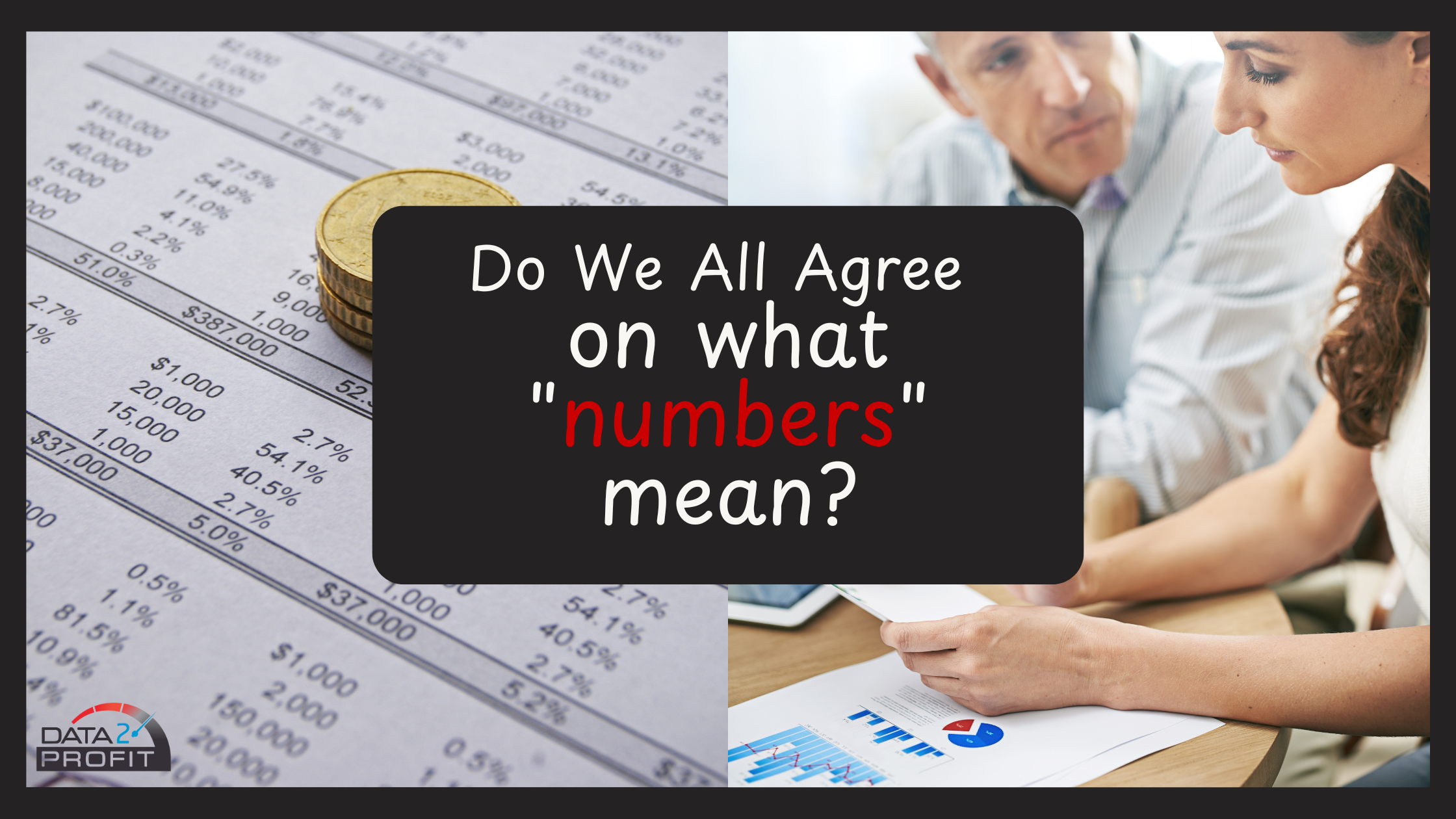Do We All Agree on what "numbers" mean?
Recently, my marketing partner interrupted me during a meeting. "Lynn," she said, "you need to stop talking about numbers. Nobody knows what you mean. Can we call it data, or financials, or something other than numbers?"
I laughed—at myself and the truth in her comment. As a Fractional CFO and Data Magician, I live in a world of numbers. My perspective spans everything from your financial statements to the raw numbers your business generates daily. She reminded me that most others do not.
Before we get into different types of numbers, we must first zoom out and explore what numbers are, what they do, and the perspectives they offer.
"Numbers" include any information created from financial and operational data. They represent every part of your business at multiple levels.
"Numbers" collectively quantify people's behaviors and decisions about your business. For example, hiring someone, earning a rave customer review, or a vendor raising prices all have a measurable impact on your business.
Numbers can reflect past or future expectations. Let's say you made $2 million this year. Are you happy? Probably ecstatic if you expected only $1 million, bummed if you expected $4 million. Expectations shape your views of success and guide your future.
Business leaders tend to view numbers as "done." When a report gets to them, countless activities have been processed, recorded, and summarized into "results." These reports tell you 'what' (sales are up) but fall short in explaining 'why' or suggesting actionable 'what's next' (nationally expand a regional test market).
No wonder numbers can feel vague and overwhelming! Yet, used well, they do two amazing things:
Tell the story of your business.
Create a common language to provide clear direction to your team.
So, let's dive into what I mean by "numbers" and why they matter to your business success.
The Numbers in Your Business
To fully understand your business, you must see the full spectrum of numbers at work. Here's how I think about them:
1. The Financial Statements – The Finished Cake
Your financial statements—income statement, balance sheet, and cash flow statement—are like beautifully baked cakes. They are the ultimate "done" that shows the financial health of your business. Each has its unique special purpose and story you must understand.
Financial statements offer a backward-looking snapshot of where you've been and do not indicate if the results are good, bad, or mixed. They just are—unless compared to a prior period or a goal.
2. Key Performance Indicators (KPIs) – How Your Cake is Co
KPIs are tools that measure your business in action. Think of them as the taste tests and temperature checks while your cake is baking. KPIs provide real-time insight into how efficiently and effectively your business is running.
Do you watch Shark Tank? The Sharks focus on 5-6 KPIs to assess risk, growth potential, and future returns. Every business should regularly measure KPIs, such as gross margin, sales/employee, average order value, or customer acquisition cost.
Your KPIs should include both leading and lagging indicators:
Leading KPIs are actionable, meaning they help you adjust strategies to influence future results. Examples include sales pipeline value, website traffic, and email open rates.
Lagging KPIs are historical, including revenue growth, profit margins, and customer retention.
Finally, avoid the trap of sticking to the same KPIs for years. As your business changes, change your KPIs!
3. The Raw Data – Your Ingredients and Processes
Every day, your business generates a flood of operational and financial data: website clicks, production volumes, customer feedback, and more. This data is the raw ingredients, mixing, measuring, and timing that create the "cake" of your financial statements and standard KPIs.
Analysis of this raw data is how you create insights and learn something new about your business. You also use data to set goals, evaluate the ROI of major decisions, and assess different business strategies and scenarios. Ignoring the value of this raw data can be costly.
Accounting vs. Finance: The Bakers and the Recipe Developers
Now that we've talked about the "what," let's look at the "who":
Accounting: The Bakers
Accountants are the bakers—they carefully document what's been done, ensuring the recipe is followed and the results are recorded. Their job is to accurately report the history of your business, ensuring compliance and providing clarity.
Finance: The Recipe Developers
Finance is about learning and guiding. It's forward-looking, focused on improving the recipe, testing new ingredients, and deciding whether to offer muffins or cookies or open a bakery. Finance uses data from accounting and other sources to guide decisions that drive profitability and growth. Financial expertise includes forecasting, customer and product profitability, and strategy development.
Why This Matters to You
Whether you call them numbers, data, or financials, these facts and information drive your business. When you understand the different roles and relationships, you gain clarity to guide your business toward greater profitability, long-term value, and personal wealth.
So, let's move you beyond the fear or vagueness of "numbers" and embrace the story they tell. After all, whether it's cake, cookies, or croissants, the right mix of ingredients, processes, and strategy will always lead to something delicious.
Let’s Start
As much as it's all about the numbers, it's actually all about you. If you're ready to turn your numbers into actionable insights or want to understand the recipe better, reach out. As your Fractional CFO, I'll help you craft a financial strategy that works for you and delivers Confident Financial Outcomes.

